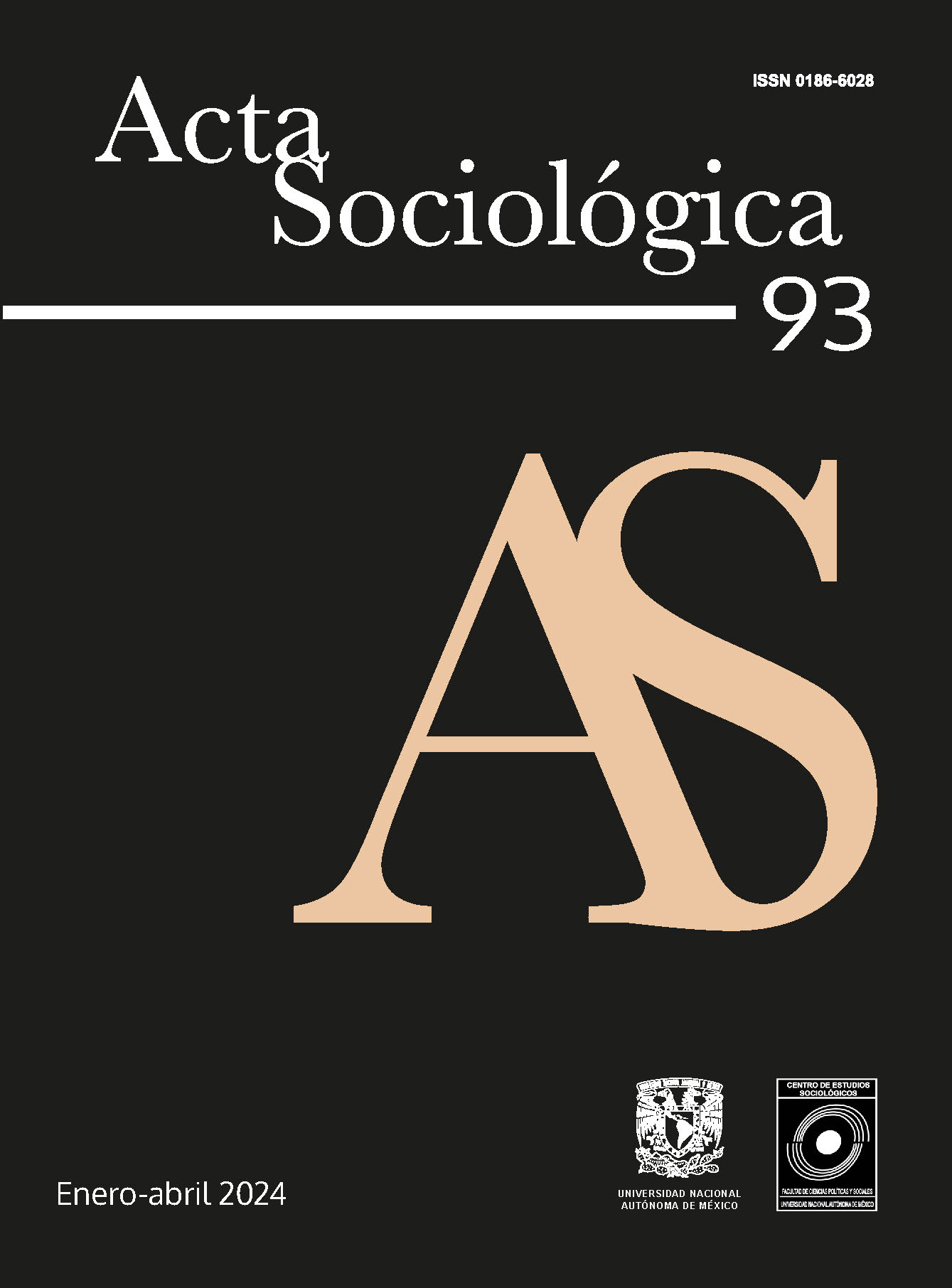Creativity work in scientific asymmetries. The case of emerging diseases in Yucatan.
Main Article Content
Abstract
The study of emerging diseases has been developed for several decades in Yucatan (Mexico). Biology, entomology, virology, immunology,medicine, and other disciplines have built a tradition on this issue in the region; however, the trajectory of this field of knowledge has been influenced by the scientific agendas of central regions in scientific production (the United States and Western Europe, mainly). This article analyzes the relationship between centers and peripheries, highlighting the asymmetries and the creative work of Yucatan scientists to resist them. It is concluded that the scientific practices of researchers in Yucatan respond to global agendas but simultaneously produce breaking points thanks to a creative dimension in the construction of knowledge.
Article Details
Citas en Dimensions Service
References
Appadurai, Arjun. 2000. “Grassroots Globalization and the Research Imagination”, Public Culture 12(1), 1-19, Estados Unidos: Duke University Press. https://doi.org/10.1215/08992363-12-1-1
Appadurai, Arjun. 2001. La modernidad desbordada. Dimensiones culturales de la globalización. Montevideo: Trilce, Buenos Aires: Fondo de Cultura Económica.
Araujo, Kathya y Danilo Martuccelli. 2012. Desafíos comunes. Retrato de la sociedad chilena y sus individuos. Tomos I y II. Santiago de Chile: lom. Collins, Harry. 2010. Tacit and Explicit Knowledge. Chicago y Londres: The University of Chicago Press.
Collins, Harry y Robert Evans. 2009. Rethinking Expertise. Chicago y Londres: The University of Chicago Press.
Feld, Adriana y Pablo Kreimer. 2019. “Scientific cooperation and centre-periphery relations: attitudes and interests of European and Latin American scientists”, Tapuya: Latin American Science, Technology and Society, Reino Unido: Routledge. https://doi.org/10.1080/25729861.2019.1636620
Galeano, Eduardo. 2021. Las venas abiertas de América Latina. Ciudad de México: Siglo xxi.
Guzmán Tovar, César. 2018. “Fractured scientific subjectivities. International movility as an option and obligation”, Tapuya: Latinamerican Science, Technology and Society, 1(1), 219-237. https://doi.org/10.1080/25729861.2018.1536309
Guzmán Tovar, César. 2019. “De itinerarios, insidencias y otros designios. Trayectorias científicas en México”, Artefactos. Revista de estudios de la ciencia y la tecnología, Vol. 8, Nº 2, 2ª Época, 73-101. doi: http://dx.doi. org/10.14201/art20198273101
Guzmán Tovar, César. 2020a. “Oasis, disrupciones y disensos en las prácticas científicas. Estudio de casos en México”. Redes. Revista de Estudios Sociales de la Ciencia y la Tecnología, 25(49), 69-99. https:// revistaredes.unq.edu.ar/index.php/redes/article/view/55
Guzmán Tovar, César. 2020b. Senderos bifurcados, subjetividades convergentes. Trayectorias y experiencias científicas de investigadores sociales en Argentina, Colombia y México. Ciudad de México: anUies.
Guzmán Tovar, César. 2021. Tras los rastros de las prácticas. Desafíos comunes en el hacer ciencia en Argentina, Colombia y México. En Política, gestión y evaluación de la investigación en América Latina y el Caribe, Liliana Córdoba, Laura Rovelli y Pablo Vommaro (Eds.), México: clacso.
Invernizzi, Noela, Amílcar Davyt, Leandro Rodríguez Medina y Pablo Kreimer. 2022. “sts Between Centers and Peripheries: How Transnational are Leading sts Journals?”, Engaging Science, Technology, and Society,8(3), 31-62. https://doi.org/10.17351/ests2022.1005
Joas, Hans. 2013. La creatividad de la acción, Madrid: Centro de Investigaciones Sociológicas.
Kreimer, Pablo. 2006. “¿Dependientes o integrados? La ciencia latinoamericana y la nueva división internacional del trabajo”, Nómadas, Nº 24, 199-212, Colombia: Universidad Central.
Kreimer, Pablo. 2014. “‘Citizen of the world’ or a local producer of useful knowledge? That’s the question”. En Academic Dependency and Professionalization in the South, Fernanda Beigel y Hanan Sabea (eds.), Mendoza: ediUnc.
Kreimer, Pablo. 2017. “Un amor no correspondido. cts y las ciencias sociales”, Revue d’Anthropologie des Connaissances, 11(2), Francia: Société d’Anthropologie des Connaissances. https://doi.org/10.3917/rac.035.0187.
Kreimer, Pablo. 2019. Science and Society in Latin America: Peripheral Modernities. Nueva York: Routledge.
Kreimer, Pablo. 2022a. “Constructivist Paradoxes Part 1: Critical Thoughts about Provincializing, Globalizing, and Localizing sts from a Non-Hege-monic Perspective”, Engaging Science, Technology, and Society, 8(2): 159–175. https://doi.org/10.17351/ests2022.1109
Kreimer, Pablo. 2022b. “Constructivist Paradoxes Part 2: Latin American sts, between Centers and Peripheries”, Engaging Science, Technology, and Society, 8(3): 87–106. https://doi.org/10.17351/ests2022.1893
Kreimer, Pablo y Luciano Levin. 2013. “Scientific cooperation between the European Union and Latin American countries: Framework Program- mes 6 and 7”. En Research collaborations between Europe and Latin America: Mapping and understanding partnership, Jacques Gaillard y Rigas Arvanitis (eds.), Francia: Editions des Archives Contemporaines.
Law, John. 2020. Después del método. Desorden en la investigación en ciencias sociales. Colombia: Universidad del Cauca.
Martuccelli, Danilo y Jose Santiago. 2017. El desafío sociológico hoy. Individuo y retos sociales. Madrid: Centro de Investigaciones Sociológicas.
Mol, Annemarie y John Law. 1991. “Regions, Networks and Fluids: Anaemia and Social Topology”, Social Studies of Science, 24(4): 641-671.
Pickering, Andrew. 1995. “Beyond Constraint: The Temporality of Practice and the Historicity of Knowledge”. En Scientific Practice. Theories and Stories of Doing Physics, Buchwald, Jed (ed.), Chicago: The University of Chicago Press.
Rodríguez Medina, Leandro. 2022. “La internacionalización de las ciencias sociales como desafío institucional”. En Conocimientos, sociedades y tecnologías en América Latina. Viejos modelos y desencantos, nuevos horizontes y desafíos, Vessuri, Hebe (ed.), Colombia: Fce, Universidad de Los Andes.
Rodriguez Medina, Leandro, Hugo Ferpozzi, Juan Layna, Emiliano Martin Valdez y Pablo Kreimer. 2019. “International Ties at Peripheral Sites: Co- producing Social Processes and Scientific Knowledge in Latin America”, Science as Culture, 1-27. https://doi.org/10.1080/09505431.2019.1629409
Thomas, Hernán. 2013. “Estructuras cerradas versus procesos dinámicos: trayectorias y estilos de innovación y cambio tecnológico”. En Actos, actores y artefactos. Sociología de la tecnología, Hernán Thomas y Alfonso Buch (comps.), Argentina: Universidad Nacional de Quilmes.
Vinck, Dominique y Nicolas Baya-Laffite. 2022. “¿Reagenciar la convivencia? Desafíos para los estudios cts desde el Sur hoy”. En Conocimientos, sociedades y tecnologías en América Latina. Viejos modelos y desencantos, nuevos horizontes y desafíos, Hebe Vessuri (ed.), Colombia: Fce, Universidad de Los Andes.
Villa Lever, Lorenza, César Guzmán Tovar y Karina Sánchez. En prensa. “La movilización del conocimiento en los estudios sobre educación y sociedad en México”. En Problemas estratégicos y ciencia social. En Busca de la movilización del conocimiento Rosalba Casas, Oscar Con- treras, Alfredo Hualde y Cristina Puga (Coord.), México: cePhcis-Unam.
